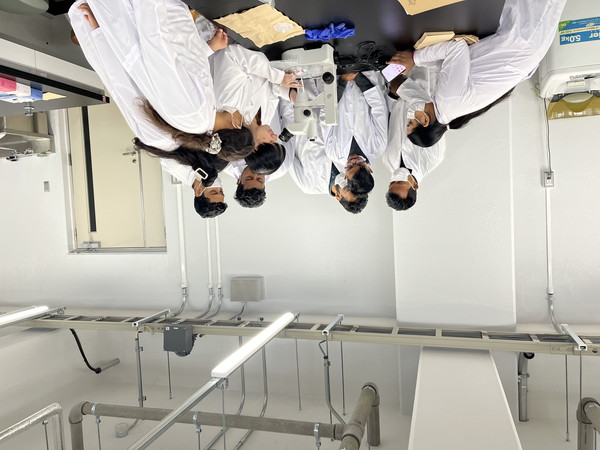COVID−19 in Thailand
In Thailand, the COVID−19 pandemic has increased since March 2020. The number of new cases was increasingly reported, especially in Bangkok. Some of the cases were infected by foreigners who traveled from the disease outbreak countries. However, most cases were infected from crowd activities, for example, boxing stadium and entertainment places (pubs and nightclubs), etc. Therefore, the Thai government has swiftly published policies to control the outbreak. The Thai control policies has been continuously strengthened. For example, Thai people who would like to come back to Thailand must have a medical certification before traveling to Thailand. When they arrived in Thailand, all the people must stay at a quarantine place for 14 days for monitoring of their health status. Moreover, the number of passengers per day who can come to Thailand was also limited. Despite this, the number of cases was still increasing. The Thai ministry of public health under the Thai government is working strictly to enforce these regulations. The new measures had been expanded.
On 25 March 2020, the prime minister made a declaration of emergency situation according to the emergency decree. The declaration was made to control the elevated outbreak situation in Thailand. For the emergency decree, the important issues were made to slow down the COVID−19 outbreak as described below.
− Activities are not allowed to be conducted in the risky areas, for example, shopping malls, markets and weekend markets, dining in restaurants, beauty salons, exhibition and convention centers, all educational institutions, cinemas, parks and playgrounds, pubs and nightclubs, swimming pools, health spas, boxing stadiums and boxing schools, sports stadiums and gym, and libraries, etc. However, some places are exempted and allowed to be open such as take−away food or delivery, supermarkets, food markets, shops selling necessary items, and convenience stores.
− The places that remain open are banks and financial institutions, some hotels and hostels, petrol stations, delivery services, government agencies, ATM, hospital clinics and pharmacies, and postal service.
− Nation−wide curfew in Thailand was enforced between 10.00 pm – 04.00 am. Thus, all transports, convenience stores, and food deliveries must be opened outside curfew hours.
− Thailand's borders to entry have been closed to prevent the COVID−19 outbreak from outside.
− People who break the curfew decree will be punished according to Thai laws.
− Individual provinces may make restrictions depending on the individual area.
− People should stay at home and keep social distancing according to the motto “Stay home, Stop the disease, for the Nation”.
− People should not join the gatherings of large group of people.
− People should maintain their health through social responsibility, including the use of surgical masks and hand sanitizer gels, washing hands, not being in contact nor receiving the virus through saliva droplets, practicing social distancing, and seeking medical attention when having the suspicion of being infected.
Today (On 1 May 2020), the COVID−19 outbreak situation in Thailand still exist but on a decreasing trend. The total number of new cases is lower than last month (Fig.1 and Fig. 2). Moreover, the number of recovered patients has increased as well (2,960 COVID−19 cases/2,719 recovered cases). However, the Thai government has extended the emergency decree until the end of May 2020.

Figure 1: Total Corona Virus cases in Thailand
(Information from https://www.worldometers.info/coronavirus/country/thailand/ )

Figure 2: Daily new cases in Thailand
(Information from https://www.worldometers.info/coronavirus/country/thailand/ )
Effect on lifestyle and society
Since the COVID−19 outbreak in Thailand, the behavior of people has been changed. After the Thai government announced the emergency situation, all people have adapted their lifestyle to protect themselves. The personal hygiene and household sanitation have been included to all. The face mask and face shield have been widely used. Moreover, hand sanitizer has become a new essential for daily life. Before entering a building or shop, all people must wear the face mask and being checked for fever (abnormal body temperature) .
Furthermore, economic status has become a new problem because of the lock−down policy to prevent the spread of the disease. Some businesses have no income for a while. Thus, the Thai government has provided money for affected people. Besides, some people or organizations have to help each other by donating money and food to affected people. All activities that can help Thai mental status during the abnormal situation have been conducted. For living behavior, food is an important thing for daily life. Thus, food delivery has become a popular business, such as Grab Food, Get, Food Panda, and Line Man, etc. Moreover, social media markets have also become popular.
The strong organization that works continuously is medical institutions. Thus, a motto by the medical staff has been created “We stay at work for you, please stay home for us”. Also, most of the people stay at home. The trend to work from home (WFH) has been established. Some activities at home have also increased, such as cooking, dancing, and singing, etc. For my profession, the educational institute has been closed but my work has not been stopped. We are working at home for teaching, meeting, and learning. The popular tools are the online−meeting applications, such as Microsoft Teams and Zoom meeting. We also modified the teaching methods for our students. The new active learning has been developed, such as online−assignment, online−test, and online−presentation. For the veterinary study, we have changed to the new methods for learning especially the clinical study, such as online−case discussion and VOD (Video on demand) clips of physical examination.
In addition, I hope that the pandemic situation for all countries will be over very soon. However, we should be aware of the future outbreak and re−emerging disease by changing our behavior to the new normal. Hopefully, the future vaccine for COVID−19 and personal health status are the crucial tools to fight the disease.
Reported by Sirinun Pisamai (DVM, PhD)
Department of Surgery, Faculty of Veterinary Science
Chulalongkorn University, Bangkok, Thailand




